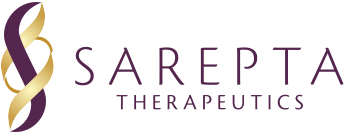June 15, 2025
Dear Duchenne Community,
At Sarepta, our mission is rooted in a deep commitment to the Duchenne community and to the safety and well-being of every individual we serve. Today, we are providing a safety update regarding ELEVIDYS (delandistrogene moxeparvovec-rokl), the only approved gene therapy for patients with Duchenne muscular dystrophy. We are devastated to share a second reported case of acute liver failure (ALF) and the patient has passed away. We send our heartfelt condolences to his family and their care team and share in their profound sadness. The cases of ALF to date have both occurred in non-ambulatory individuals with Duchenne, leading to new information about the necessary next steps we are taking to strengthen the Elevidys safety profile in non-ambulatory patients.
Sarepta is engaging with regulators and immediately bringing together an independent panel of leading experts in Duchenne and liver health to review available data and evaluate an enhanced safety regimen that may include adding an additional immunosuppressive medicine, called sirolimus, to the current corticosteroids used for a short period before and after treatment with ELEVIDYS. This approach is supported by preclinical data demonstrating sirolimus’ effectiveness in suppressing liver enzymes, a key factor in mitigating potential safety events.
While the experts and regulators review all of the information, Sarepta is suspending commercial shipments of ELEVIDYS for non-ambulatory patients.For ambulatory patients, no treatment changes are proposed, and the current practice of administering corticosteroids before and after ELEVIDYS infusion, along with post-treatment monitoring, remains the same.
Please see the prescribing information (i.e., FDA-approved label) found in the Treatment Guide for Caregivers. Families with questions about their personal care should discuss these with their physicians.
We also want to make you aware that we are pausing the ENVISION study (SRP-9001-303). ENVISION is the global clinical trial evaluating ELEVIDYS in older ambulatory and non-ambulatory individuals and had completed dosing and screening in the U.S. but was still screening and dosing outside the U.S.
While we know that an update like this is difficult for families, we promise to continue being transparent. We hope to see many of you at the PPMD conference this week and will be available to meet there.
With gratitude and commitment,
Wendy Erler
Sarepta Patient Affairs
[email protected]
